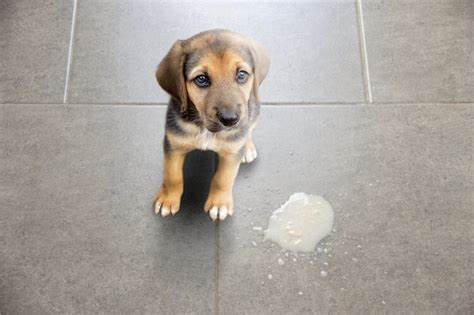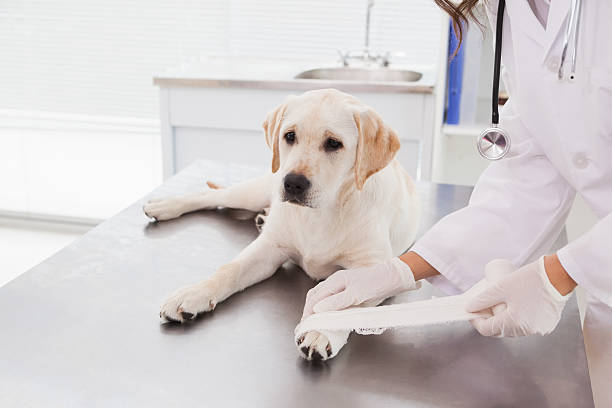It can be scary when your puppy starts vomiting. You immediately worry, “why does my puppy keep throwing up?” While it’s normal for puppies to occasionally vomit, ongoing vomiting could signal an underlying health issue.
In this article, we’ll cover the most common reasons puppies vomit and when to see the vet. We’ll also give tips for caring for a vomiting puppy at home.
Common Causes of Puppy Vomiting
Puppy vomiting can occur for many reasons. Here are some of the most frequent causes:
Dietary indiscretion
Puppies are prone to eating things they shouldn’t. Ingesting non-food items, rotting debris in the yard, or rapid food changes can irritate the digestive tract and cause vomiting.
Parasites
Intestinal parasites like roundworms, hookworms, coccidia or giardia can infect puppies and cause vomiting, diarrhea, or gas.
Viral or bacterial infection
Viral infections like parvovirus or distemper can cause severe vomiting. Bacteria like salmonella or clostridium may also be culprits.
Car sickness
Motion sickness while riding in the car can trigger vomiting in puppies prone to it. An empty stomach and anxiety worsen it.
Overeating
Eating too much food too fast is a common cause of vomiting in puppies. Their eyes are often bigger than their bellies!
Allergies or food intolerance
An adverse reaction to ingredients in food or treats may cause gastrointestinal upset and vomiting in some puppies.
Blockage or foreign object
Ingesting toys, rocks, sticks or other items can obstruct the intestinal tract and cause vomiting.
Medication reaction
Certain medications, like dewormers, may initially cause vomiting or nausea as a side effect.

When to See the Vet for Puppy Vomiting
If your puppy has vomited once but seems otherwise normal, home monitoring may be okay. But contact your vet promptly if:
- Vomiting is persistent or projectile
- Puppy seems lethargic, has diarrhea, or won’t eat
- Vomit contains blood or a strange color/smell
- Puppy’s abdomen is tender or distended
- Vomiting lasts over 24 hours
- Puppy has a high fever
- Dehydration occurs (dry gums, sunken eyes)
- Vomiting is combined with other severe symptoms
Puppies can deteriorate quickly, so when in doubt, call your vet. Severe vomiting or vomiting along with concerning symptoms warrants an exam.

Caring for a Vomiting Puppy at Home
If your puppy has mild vomiting, here are some tips for caring for them at home:
Withhold food – Rest the stomach by taking away food and treats for 6-12 hours. Offer small sips of water.
Avoid medications – Don’t give any OTC meds unless specifically recommended by your vet.
Offer bland diet – After fasting, try serving boiled chicken and rice in small amounts 3-4 times daily.
Prevent dehydration – If vomiting continues, use an oral rehydration solution to replenish fluids.
Watch for improvement – The bland diet and rest should help vomiting resolve within 12-24 hours. If not, call your vet.
Clean up messes – Use an enzymatic cleaner to fully remove traces of vomit and prevent reingestion.
Document episodes – Note time, description of vomit, and events prior to help your vet.
With a little TLC and vet guidance, puppy vomiting often resolves on its own. But severe, recurring cases will need medical treatment.
When to Switch From Puppy Food to Adult Food
Seeing your puppy vomit can be alarming. While occasional vomiting is normal, ongoing episodes could mean an underlying problem. Contact your vet if vomiting persists, contains blood, or is accompanied by other concerning symptoms. They can determine if your puppy needs supportive care or specific treatment. With prompt attention, your puppy will likely be back to their playful selves in no time!

Common Puppy Vomiting Questions
Why does my puppy vomit after eating?
Eating too much or too fast can overwhelm a puppy’s stomach and lead to vomiting. Switch to scheduled meals in set portions and slow down their eating pace.
What should I do if my puppy vomits worms?
Worms in vomit need immediate veterinary attention. Puppies need deworming medication and follow up care to ensure the infestation is fully treated.
Is it normal for puppies to vomit occasionally?
An occasional vomit, especially if caused by dietary indiscretion, is normal. But recurrent vomiting or severe cases need medical treatment.
Can I give my vomiting puppy OTC medication?
Do not give any OTC meds to puppies without your vet’s guidance, as many are not safe. Let your vet recommend appropriate treatment.
How can I settle my car sick puppy’s stomach?
For motion sickness, avoid feeding right before travel and try calming treats. If vomiting continues, talk to your vet about medication options.
Puppy vomiting can happen, but should resolve quickly with proper care. Contact your vet promptly at the first signs of persistent vomiting or additional concerning symptoms in your pup. They can get to the bottom of what’s causing the upset tummy.



